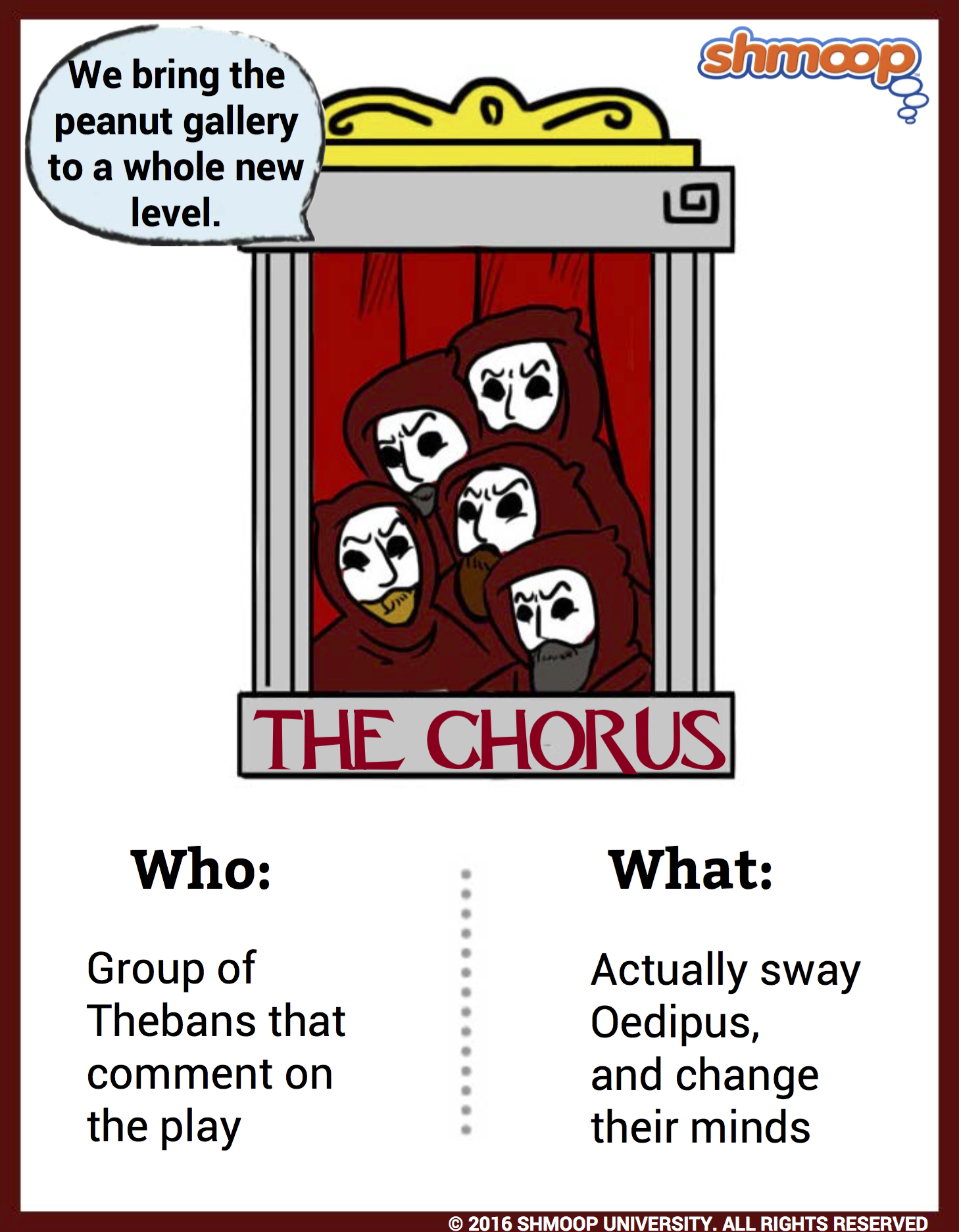Character Analysis

(Click the character infographic to download.)
A Chorus' Line(s)
The Chorus is roughly like the peanut gallery (it’s even occasionally told to shut up). Sophocles uses this group of Thebans to comment on the play's action and to foreshadow future events. He also uses it to comment on the larger impact of the characters' actions and to expound upon the play's central themes. In Oedipus the King we get choral odes on everything from tyranny to the dangers of blasphemy.
Sophocles also uses the Chorus at the beginning of the play to help tell the audience the given circumstances of the play. We hear all about the terrible havoc that the plague is wreaking on Thebes. By describing the devastation in such gruesome detail, Sophocles raises the stakes for his protagonist, Oedipus. The people of Thebes are in serious trouble; Oedipus has to figure out who killed Laius fast, or he won't have any subjects left to rule.
Unlike his contemporary Euripides, Sophocles was known to integrate his choruses into the action of the play. In Oedipus the King we see the Chorus constantly advising Oedipus to keep his cool:
CHORUS Why, Oedipus, why stung with passionate grief Hath the queen thus departed? Much I fear From this dead calm will burst a storm of woes. (1091)
Most of the time in ancient tragedies choruses do a lot of lamenting of terrible events, but do little to stop them. Amazingly, though, the Chorus in Oedipus the King manages to convince Oedipus not to banish or execute Creon. Just imagine how much worse Oedipus would have felt if he'd killed his uncle/brother-in-law on top of his other atrocities.
The Chorus in Oedipus the King goes through a distinct character arc. They begin by being supportive of Oedipus, believing, based on his past successes, that he's the right man to fix their woes. As Oedipus' behavior becomes more erratic, they become uncertain and question his motives. The fact Oedipus doesn't start lopping off heads at this point is pretty good evidence that he's not a tyrant. In the end, the Chorus is on Oedipus' side again and laments his horrific fate.
Like most all ancient Greek tragedians, Sophocles divides his choral odes into strophe and antistrophe. Both sections had the same number of lines and metrical pattern. In Greek, strophe means "turn," and antistrophe means "turn back." This makes sense when you consider the fact that, during the strophe choruses danced from right to left and during the antistrophe they did the opposite. Sophocles may have split them into two groups, so that it was as if one part of the Chorus was conversing with the other. Perhaps the dualities created by strophe and antistrophe, represent the endless, irresolvable debates for which Greek tragedy is famous.
The Chorus' Timeline